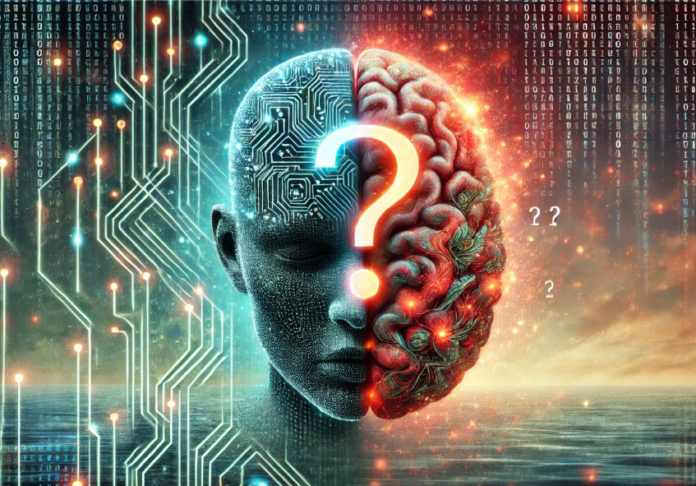In the age-old debate of nature versus nurture, recent scientific discoveries are tipping the scales heavily towards our genetic makeup. As we unravel the complexities of DNA, a provocative question emerges: Are humans merely sophisticated biological computers, with our behaviors largely predetermined by our genetic code?
The DNA Programming Paradigm
Our DNA, often described as the blueprint of life, bears striking similarities to computer programming. Like digital code, DNA uses a sequence of building blocks (nucleotides) to encode instructions for biological processes. However, DNA’s complexity surpasses that of binary computer code, utilizing four “settings” (GATC) typically communicated in sets of three, offering a base vocabulary of about 64 possibilities. This genetic programming is far from simple. The human genome contains approximately 3 billion base pairs, equivalent to about 1 gigabyte of information. Even accounting for so-called “junk DNA,” we’re left with roughly 250 megabytes of actual coding – a complexity rivaling modest-sized computer games.
Predetermined Behaviors?
Recent studies have shown that our genetic makeup significantly influences our behaviors and personality traits. Researchers have identified a network of 4,000 genes clustered into modules expressed in specific brain regions, many of which have been linked to the inheritance of human personality. These gene modules form a functional interaction network capable of orchestrating changes in gene expression, adapting to varying internal and external conditions.
Even more intriguing is the discovery of a control center composed of six highly conserved genes that coordinate networks regulating emotional reactivity and perception of meaning. This finding suggests that our responses to life’s challenges and our very understanding of the world around us may be more genetically influenced than previously thought.
The Myth of Uniqueness
While we often pride ourselves on our individuality, the stark reality is that our behaviors and traits are largely shaped by our genetic inheritance. A study using artificial intelligence techniques revealed that our personalities alter the expression of our genes, with different levels of self-awareness strongly associated with the regulation of gene expression.
This genetic determinism challenges our notions of free will and unique identity. If our behaviors and personality traits are significantly influenced by our DNA, how much of our perceived individuality is genuine, and how much is simply the expression of our genetic programming?
AI: The Next Step in Human Evolution?
As we grapple with the limitations of our DNA-determined existence, artificial intelligence emerges as a potential complement or extension to human capabilities. AI systems, driven by complex algorithms, can process information and make decisions at speeds and scales far beyond human capacity. Could AI be the key to transcending our genetic limitations? By integrating AI into our decision-making processes, we might augment our DNA-based “programming” with more flexible, rapidly evolving algorithmic intelligence.
This symbiosis could potentially lead to enhanced problem-solving abilities, more informed decision-making, and even new forms of creativity that blend human intuition with AI’s analytical prowess. However, this integration raises profound ethical questions. As AI systems become more involved in our lives, we must carefully consider the implications for human agency, privacy, and the very nature of consciousness.
Conclusion
As we continue to unravel the mysteries of our genetic code and push the boundaries of artificial intelligence, we find ourselves at a crossroads of human identity. Our DNA may predetermine much of who we are, but the future of human potential may lie in our ability to complement our biological programming with artificial intelligence. In this brave new world, the line between human and machine, between inherited traits and learned behaviors, may blur in ways we’ve only begun to imagine.





